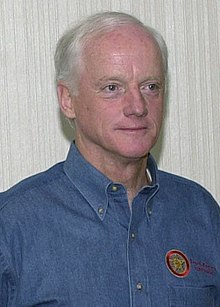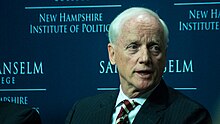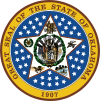
Charles Bradford Henry is an American lawyer and politician who served as the 26th governor of Oklahoma from 2003 to 2011. A Democrat, he previously served in the Oklahoma Senate from 1992 to 2003.

Henry Louis Bellmon was an American Republican politician from the U.S. State of Oklahoma. A member of the Oklahoma Legislature, he went on to become both the 18th and 23rd governor of Oklahoma, mainly in the 1960s and again in the 1980s, as well as a two-term United States Senator in the 1970s. He was the first Republican to serve as Governor of Oklahoma and, after his direct predecessor George Nigh, only the second governor to be reelected.

Mary Fallin is an American politician who served as the 27th governor of Oklahoma from 2011 to 2019. A member of the Republican Party, she was elected in 2010 and reelected in 2014. She is the first and so far only woman to be elected governor of Oklahoma. She was the first woman to represent Oklahoma in Congress since Alice Mary Robertson left office in 1923.

William Andrew Edmondson is an American lawyer and politician from the state of Oklahoma. A member of the Democratic Party, Edmondson served as the 16th Attorney General of Oklahoma from 1995 to 2011. Prior to his election as state attorney general, he served as district attorney for Muskogee County, Oklahoma, from 1983 to 1992. He was defeated twice in campaigns for U.S. Congress in Oklahoma's 2nd congressional district, where his father Ed Edmondson served from 1953 to 1973.

The Oklahoma House of Representatives is the lower house of the legislature of the U.S. state of Oklahoma. Its members introduce and vote on bills and resolutions, provide legislative oversight for state agencies, and help to craft the state's budget. The upper house of the Oklahoma Legislature is the Oklahoma Senate.

The politics of Oklahoma exists in a framework of a presidential republic modeled after the United States. The governor of Oklahoma is both head of state and head of government, and of a pluriform two-party system. Executive power is exercised by the governor and the government. Legislative power is vested in the governor and the bicameral Oklahoma Legislature. Judicial power is vested in the judiciary of Oklahoma. The political system is laid out in the 1907 Oklahoma Constitution.
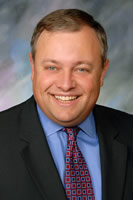
Virgil Glenn Coffee is an American lawyer and Republican politician from the U.S. state of Oklahoma. Coffee was the 30th Oklahoma Secretary of State, having been appointed by Governor Mary Fallin. He served from January 10, 2011, until he resigned effective February 1, 2013. He was the first Republican President Pro Tempore, having previously served as a Co-President Pro Tempore during the previous legislature.
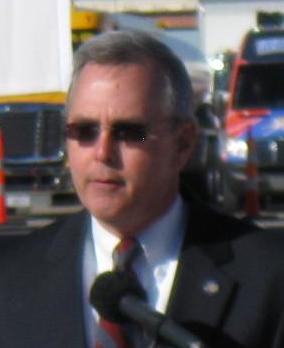
Brian John Bingman is an American politician from the U.S. state of Oklahoma who has served in elected and appointed offices since the 1990s. A member of the Republican Party, he was first elected to the Sapulpa city commission in 1992, before being elected mayor by his fellow commissioners in 1994. He would serve in both of these offices until 2004, when he was elected to the Oklahoma House of Representatives to represent the 30th district. After one term in the house, Bingman ran for the 12th district of the Oklahoma Senate in 2006 and would hold the seat until term limited in 2016. In 2011, he was elected by Republican senators to serve as the President pro tempore of the Oklahoma Senate, a position he would hold until retirement in 2016.
Brian C. Griffin is an American businessman from Oklahoma who currently serves as the Chairman of the Board of Directors for Clean Energy Systems, a private Rancho Cordova, California-based energy technology innovations firm.

Michael J. Hunter is an American politician from the state of Oklahoma. Hunter served as the Secretary of State of Oklahoma from 1999 to 2002, having been appointed by Governor of Oklahoma Frank Keating. On November 1, 2016, he was appointed to the same post by Governor Mary Fallin. He also served as Special Counsel to the Governor. On February 20, 2017, Hunter was appointed Attorney General of Oklahoma to replace Scott Pruitt who resigned to become the Administrator of the Environmental Protection Agency. On November 8, 2018, Hunter won election as Attorney General.

Neal A. "Chief" McCaleb is an American civil engineer and Republican politician from Oklahoma. A member of the Chickasaw Nation, McCaleb served in several positions in the Oklahoma state government and then as the Assistant Secretary of the Interior for Indian Affairs under President George W. Bush.

The Fifty-fourth Oklahoma Legislature was the meeting of the legislative branch of the government of Oklahoma from January 8, 2013 to January 5, 2015. The first session met from February 4, 2013, to May 24, 2013, in the Oklahoma State Capitol in Oklahoma City, during the third year of the first administration of Governor Mary Fallin. After the 2012 elections, the Republican Party held more than two-thirds of the seats in the Oklahoma Senate and the Oklahoma House of Representatives.

The Forty-seventh Oklahoma Legislature was a meeting of the legislative branch of the government of Oklahoma, composed of the Senate and the House of Representatives. It met in Oklahoma City from January 5, 1999, to January 2, 2001, during the first two years of the second term of Governor Frank Keating.

The Fortieth Oklahoma Legislature was a meeting of the legislative branch of the government of Oklahoma, composed of the Senate and the House of Representatives. It met in Oklahoma City from January 8, 1985, to January 6, 1987, during the term of Governor George Nigh. It was marked by the enactment of the Executive Branch Reform Act of 1986 and the establishment of the franchise tax in Oklahoma.

John Michael O'Connor is an American attorney and politician who served as the 19th attorney general of Oklahoma between 2021 and 2023. O’Connor was previously a shareholder of Hall Estill and a nominee to be a United States district judge of the United States District Court for the Eastern District of Oklahoma, the United States District Court for the Northern District of Oklahoma, and the United States District Court for the Western District of Oklahoma.

John Kevin Stitt is an American businessman and politician serving as the 28th governor of Oklahoma since 2019. A member of the Republican Party, he was elected in 2018, defeating Democrat and former state Attorney General Drew Edmondson with 54.3% of the vote. Stitt was reelected to a second term in 2022, defeating Superintendent of Public Instruction Joy Hofmeister, a Republican turned Democrat, with 55.4% of the vote. A member of the Cherokee Nation, Stitt is the second Native American governor after former Oklahoma governor Johnston Murray.

Kyle Hilbert is a Republican member of the Oklahoma House of Representatives and the current speaker pro tempore. He has represented House District 29 since 2016.
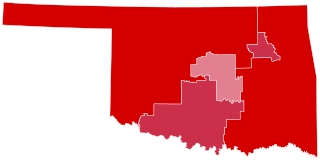
The 2022 United States House of Representatives elections in Oklahoma were held on November 8, 2022, to elect the five U.S. representatives from the state of Oklahoma, one from each of the state's five congressional districts. The primary elections for the Republican. Democratic, and Libertarian parties' nominations took place on June 28, 2022.

John Michael Montgomery is an American politician who served in the Oklahoma Senate representing the 32nd district from 2018 to 2023. He previously served in the Oklahoma House of Representatives representing the 62nd district between 2015 and 2018

Oklahoma State Question 820 was a voter initiative to legalize adult purchasing, possession and consumption of cannabis in the U.S. state of Oklahoma. It would have placed Oklahoma Medical Marijuana Authority in charge of business regulation. It appeared on the March 7, 2023 in a special election to consider this single State Question. Governor Kevin Stitt, who opposed the measure, set the special election in a successful attempt to limit voter turnout.
